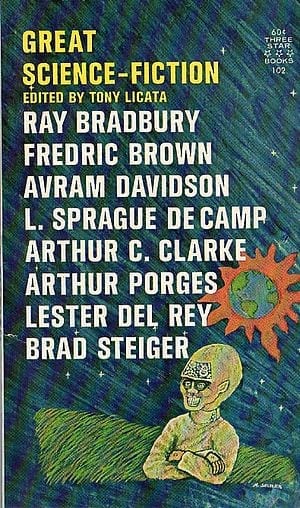
Members of the philosophy department at San Jose State University reacted angrily last week when they were asked to consider incorporating Harvard political theorist Michael Sandel’s online Justice course into their curriculum.
In an open letter to Sandel, the San Jose State faculty members rejected the idea of using Massive Open Online Courses as a “great peril to our university.”
My initial reaction was to cheer on the SJSU professors in their anti-MOOC manifesto, but after thinking through their complaints, I’m not sure all of their contentions are equally persuasive. Let’s take them one by one.
Complaint #1: Online courses are impersonal
Professor Sandel’s course has been one of the most popular offerings in Harvard’s Core since I was an undergraduate there two decades ago. Though I did not take the course myself, years after leaving Cambridge I shamelessly borrowed the title, the basic framework and some of the material to develop a syllabus for my own social justice course. “Justice” asks students to inquire critically into controversial political questions like wealth inequality, abortion and capital punishment, using resources from moral and political philosophy, not cable TV news blather, as guides.
The San Jose State philosophy department has no beef with the content of Sandel’s course; they object to its online dissemination:
In spite of our admiration for your ability to lecture in such an engaging way to such a large audience, we believe that having a scholar teach and engage his or her own students in person is far superior to having those students watch a video of another scholar engaging his or her students. Indeed, the videos of you lecturing to and interacting with your students is itself a compelling testament to the value of the in-person lecture/discussion.
This rings true. Interacting with a flesh-and-blood professor, and exploring questions together in real time with other students, offers an experience that watching a taped lecture cannot. Sandel may present issues with pith and wit, and he may have a knack for challenging students to think carefully about their preconceptions, but without direct interaction among students and teacher, the exercise is intellectual voyeurism. The Harvard students in the lecture hall can raise their hands to respond to one of Sandel’s questions, while satellite students in San Jose may only make a note of their idea or objection and wait for the video to end, or follow the line of discussion as the Cambridge gathering leads it along. This would indeed make the SJSU faculty into “glorified teaching assistants,” as the letter charges.
Still, a friend points out, a very small percentage of the 1000 or so Harvard undergrads actually participate in the Sandel-led banter over the fifteen weeks of the term. “Justice” is no seminar. So for the average student who spends the semester sitting and watching Sandel lecture, and who sits and watches a handful of fellow students ask and respond to questions, is the educational experience radically different from that of a student watching the video several thousand miles away?
Complaint #2: Reading books is preferable to watching lectures
This is the strangest and weakest of the San Jose professors’ critiques:
[P]urchasing a series of lectures does not provide anything over and above assigning a book to read. We do, of course, respect your work in political philosophy; nevertheless, having our students read a variety of texts, perhaps including your own, is far superior to having them listen to your lectures. This is especially important for a digital generation that reads far too little. If we can do something as educators we would like to increase literacy, not decrease it.
False dichotomy alert. A professor does not have to choose between showing a lecture and assigning a text any more than Sandel has to choose between delivering a lecture and assigning a reading in preparation for the lecture: he does both, as he should.
The Latest Bing News on:
Massive Open Online Courses
- I’m Set to Make a Massive Sum of Money. My Husband Is Aghast at My Plans for It.on April 26, 2024 at 8:18 am
My late husband inherited a large plot of land from his late parents and when he died, it came to me. We had one son together. When I remarried, my husband and I agreed to keep our pre-marital assets ...
- CBSE introduces NCERT online courses for classes 11, 12 on SWAYAM portalon April 25, 2024 at 10:27 pm
The CBSE has informed the principals that the NCERT's online classes for Class 11 and Class 12 are now available on the SWAYAM platform. Registration for the courses is now open ...
- 28 Free NCERT Online Courses By CBSE at SWAYAM, Check Out the Details Hereon April 25, 2024 at 8:00 pm
The students of CBSE Class 11 and Class 12 are expected to check about this innovation in detail at the official website of SWAYAM. The introduction of NCERT Online Courses will aid the students under ...
- Best Online Computer Science Programs of 2024on April 25, 2024 at 1:00 pm
More on Our Picks How to Choose an Online Computer Science Program Choosing the right online computer science program will depend on your reasons for choosing an online CS degree. Are you focused on ...
- You can take University of Toronto courses for free and these 11 are available onlineon April 25, 2024 at 9:31 am
U of T has partnered with Coursera and EdX to offer these courses, sometimes called Massive Open Online Courses or MOOCs, that anyone can take. You don't have to be enrolled at the Ontario university ...
- CBSE Informs Schools About Free NCERT Online Courses for Class 11, 12 on SWAYAM Portalon April 24, 2024 at 10:25 pm
The Central Board of Secondary Education (CBSE) has taken a significant step in enhancing educational accessibility by informing schools about the ava ...
- CBSE notifies schools over NCERT online courses for classes 11, 12on April 24, 2024 at 6:12 am
The principals of all associated schools have received letters from the Central Board of Secondary Education (CBSE) informing them of the availability of NCERT online courses for Classes 11 and 12 on ...
- CBSE Notifies Schools Over NCERT Online Courses For Classes 11, 12 On SWAYAM Portalon April 24, 2024 at 5:12 am
These programmes will be available from April 22 to September 30, 2024. Enrollment for the courses is now open and will close on September 1, 2024.
- How a Massive Hack of Psychotherapy Records Revealed a Nation’s Secretson April 22, 2024 at 1:00 am
Aleksanteri Kivimäki was a hacker wunderkind with a mean streak. Now he’s on trial for the largest crime in Finland’s history.
- A course for journalists: Reporting effectively for climate actionon April 20, 2024 at 8:33 am
To help reach more journalists, more widely, we have developed a Massive Open Online Course on climate reporting. It's free, and available to all.
The Latest Google Headlines on:
Massive Open Online Courses
[google_news title=”” keyword=”Massive Open Online Courses” num_posts=”10″ blurb_length=”0″ show_thumb=”left”]
The Latest Bing News on:
MOOCs
- CBSE introduces NCERT online courses for classes 11, 12 on SWAYAM portalon April 25, 2024 at 10:27 pm
The CBSE has informed the principals that the NCERT's online classes for Class 11 and Class 12 are now available on the SWAYAM platform. Registration for the courses is now open ...
- 28 Free NCERT Online Courses By CBSE at SWAYAM, Check Out the Details Hereon April 25, 2024 at 8:00 pm
The students of CBSE Class 11 and Class 12 are expected to check about this innovation in detail at the official website of SWAYAM. The introduction of NCERT Online Courses will aid the students under ...
- You can take University of Toronto courses for free and these 11 are available onlineon April 25, 2024 at 9:31 am
U of T has partnered with Coursera and EdX to offer these courses, sometimes called Massive Open Online Courses or MOOCs, that anyone can take. You don't have to be enrolled at the Ontario university ...
- CBSE Informs Schools About Free NCERT Online Courses for Class 11, 12 on SWAYAM Portalon April 24, 2024 at 10:25 pm
The Central Board of Secondary Education (CBSE) has taken a significant step in enhancing educational accessibility by informing schools about the ava ...
- CBSE notifies schools over NCERT online courses for classes 11, 12on April 24, 2024 at 6:12 am
The principals of all associated schools have received letters from the Central Board of Secondary Education (CBSE) informing them of the availability of NCERT online courses for Classes 11 and 12 on ...
- Africa: 5 Questions Schools and Universities Should Ask Before They Purchase AI Tech Productson April 24, 2024 at 6:10 am
Analysis - Every few years, an emerging technology shows up at the doorstep of schools and universities promising to transform education. The most recent? Technologies and apps that include or are ...
- CBSE Notifies Schools Over NCERT Online Courses For Classes 11, 12 On SWAYAM Portalon April 24, 2024 at 5:12 am
These programmes will be available from April 22 to September 30, 2024. Enrollment for the courses is now open and will close on September 1, 2024.
- Is AI Finally a Way to Reduce Higher Ed Costs?on April 23, 2024 at 12:06 am
AI could free up faculty time to focus on the teaching and relationship-building that matter most, José Antonio Bowen and C. Edward Watson write.
- The colleges and universities that have set up a Gaza Solidarity Encampmenton April 22, 2024 at 2:48 pm
The number of colleges and universities where students are establishing Gaza Solidarity Encampments is growing. Here are some of those erected thus far.
- 5 Questions Schools Should Ask Before Purchasing AI Tech Productson April 21, 2024 at 8:30 am
Veletsianos: Five questions that should be answered before school officials purchase any technology, app or platform that relies on AI.
The Latest Google Headlines on:
MOOCs
[google_news title=”” keyword=”MOOCs” num_posts=”10″ blurb_length=”0″ show_thumb=”left”]









